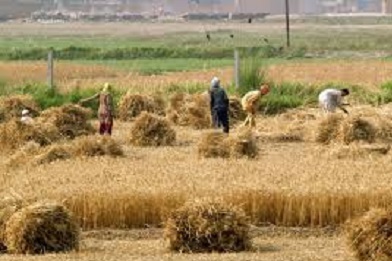FAO’s latest outlook for global cereal supply and demand in 2017/18 remains favorable as demand is projected to fall slightly short of the anticipated production level, allowing global stocks to remain around their record-high opening levels.
FAO currently forecasts world cereal production in 2017 at 2 594 million tones, 5 million tones lower than the May forecast and down 14.1 million tones (0.5 percent) year-on-year. The monthly decrease is mostly the result of deteriorating production prospects for coarse grains and, to a lesser extent, for rice. Compared to 2016, much of the reduction is due to expectations of a 2.2 percent contraction in global wheat output as well as lower barley and sorghum production. These declines would more than offset a 1.4 percent expected expansion in global maize output, driven primarily by strong rebounds in South America and Southern Africa, and a 0.7 percent increase in world rice production.
World cereal utilization in 2017/18 is projected at a record level of 2 584 million tones, up 13 million tones (0.5 percent) from 2016/17. This forecast stands 11 million tones below May expectations, largely reflecting downward adjustments made to historical wheat and maize feed estimates, particularly for China. On an annual basis, total wheat utilization is projected to decline by 0.4 percent from 2016/17, whereas the total uses of coarse grains and rice are expected to grow by 0.8 percent and 1.2 percent, respectively.
FAO’s May forecast of world cereal stocks by the end of seasons in 2018 has been raised by 14 million tones and now stands at 703 million tones, up marginally from the 2017 record high. Most of the month-to-month upward revision concerns wheat and maize inventories, with China accounting for much of the adjustment. Overall, the anticipated annual increase in global cereal inventories reflects larger than earlier-expected wheat stocks, while carryovers of coarse grains could very well decline and those of rice would most likely remain largely steady.
World trade in cereals in 2017/18 is forecast to decline by around 5 million tones (1.2 percent) to 391 million tones, marking the first contraction in four years. The reduction is largely the result of expectations of weaker import demand for wheat, maize and sorghum.
Prepared By :Sh. Kh.

